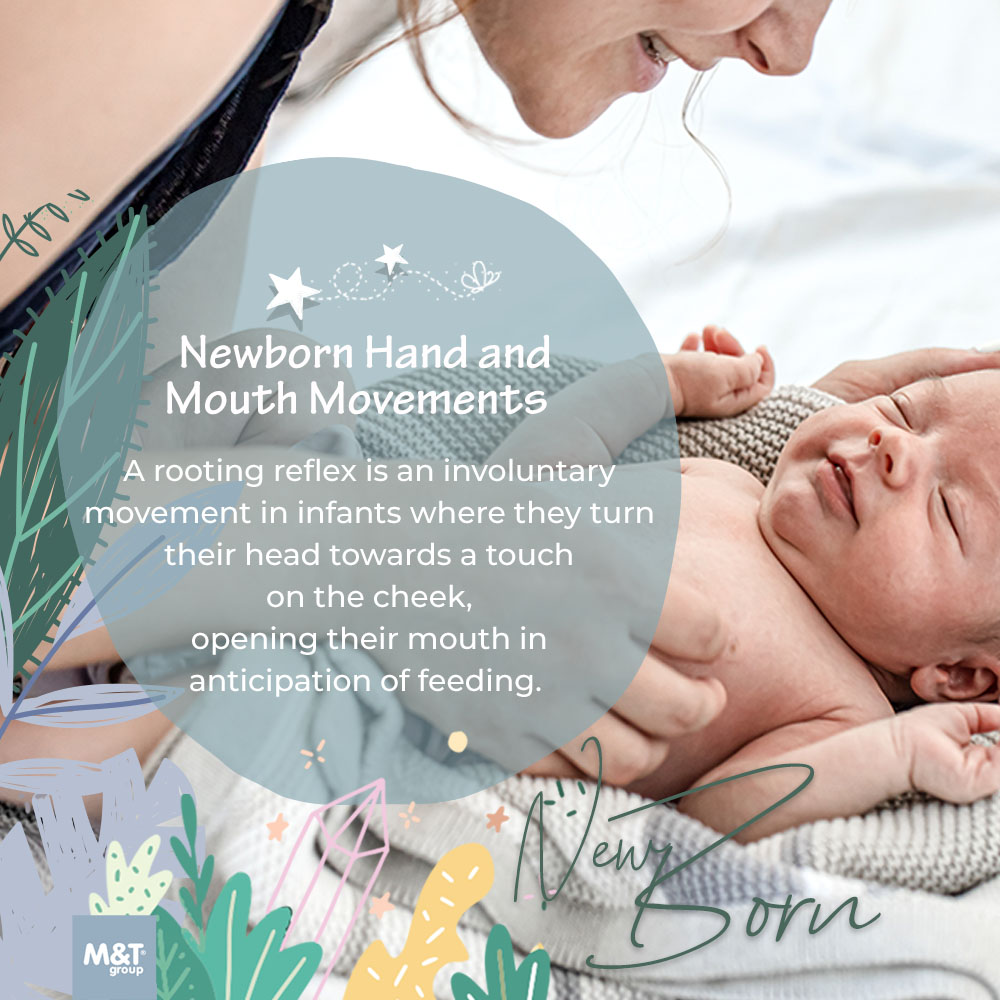A rooting reflex is an involuntary movement in infants where they turn their head towards a touch on the cheek, opening their mouth in anticipation of feeding. This is often accompanied by hand movements that bring their hands towards their face, facilitating the search for a nipple – a crucial survival instinct that helps newborns locate food sources and initiate feeding behavior; as a baby develops, this reflex naturally integrates into more coordinated hand-to-mouth movements, allowing for voluntary feeding.
Key points about the rooting reflex and hand movements.
How it works:
When a baby’s cheek is gently stroked, their head turns towards the stimulation, mouth opening slightly, while their hands may simultaneously move towards their face, sometimes even reaching for the source of touch.
Developmental significance:
This reflex is present from birth and is considered a vital part of early feeding development. It helps newborns find the breast or bottle, preparing them for sucking and swallowing.
Hand-to-mouth coordination:
As babies mature, the rooting reflex gradually integrates with other motor skills, allowing them to bring their hands to their mouth voluntarily, which is a key milestone in feeding independence.
Early signs of developmental concerns:
If a baby does not show a rooting reflex or exhibits significantly delayed hand-to-mouth coordination, it may indicate potential neurological issues and warrants consultation with a healthcare professional.
Factors influencing the rooting reflex and hand movements:
Sensory input:
The sensation of touch on the cheek triggers the rooting reflex, which can be influenced by the texture and pressure of the stimulus.
Brain development:
As the brain matures, the rooting reflex becomes more coordinated and eventually transitions into voluntary hand movements.
Environmental factors:
Feeding practices and the caregiver’s interaction can play a role in how well a baby develops their rooting reflex and hand-to-mouth coordination.
Important considerations:
Normal progression:
Most babies naturally lose their rooting reflex around 3-4 months old as they develop voluntary feeding skills.
When to seek professional advice:
If a baby shows a very weak or absent rooting reflex, or if they have difficulty bringing their hands to their mouth beyond the expected developmental timeframe, consult a pediatrician.





